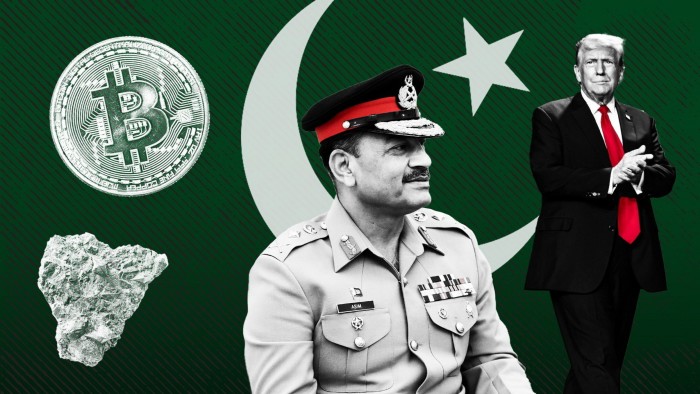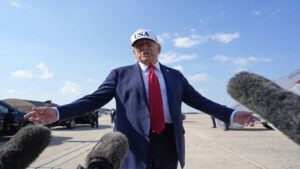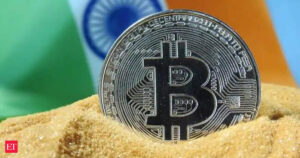Pakistan Courts Trump: Nobel, Crypto, and Rare Earths on the Table

Pakistan Seeks to Position Itself as a Bitcoin Mining Hub Amid Trade Negotiations with the U.S.
Islamabad’s Strategic Moves to Enhance Trade Relations
Pakistan is actively promoting itself as a potential center for bitcoin mining and a source of rare earth minerals, all while seeking to strengthen its economic ties with the United States. This initiative comes as the country grapples with financial challenges and aims to avoid significant trade tariffs that could be imposed soon.
- Islamabad’s Strategic Moves to Enhance Trade Relations
- Leveraging Cryptocurrency and Mining for Economic Growth
- High-Level Discussions and Diplomatic Efforts
- Initiatives in Cryptocurrency Regulation and Collaboration
- Rebranding Pakistan as a Global Innovator
- Tapping into Untapped Mineral Wealth
- Conclusion: A Strategic Path Forward for Pakistan
The Pakistani finance ministry is engaged in negotiations to secure a trade agreement with the U.S., its largest export market, in hopes of sidestepping tariffs that could reach up to 29% shortly. Officials believe that by emphasizing its capabilities in cryptocurrency and mining, along with proposing a Nobel Peace Prize nomination for Donald Trump, they can gain favor with the U.S. administration.
Leveraging Cryptocurrency and Mining for Economic Growth
Experts suggest that Pakistan’s approach is a savvy attempt to attract U.S. attention by aligning with its interests in cryptocurrency and critical minerals. Michael Kugelman, a senior fellow at the Asia Pacific Foundation of Canada, noted that Pakistan is strategically positioning itself to appeal to the U.S. administration.
The U.S. accounts for approximately 20% of Pakistan’s exports, particularly in the garment sector. Pakistani negotiators, including the country’s crypto minister, recently traveled to Washington for discussions with U.S. trade representatives. They hope to finalize a deal that may involve commitments to purchase American cotton and soybeans, as well as establish a partnership in the mining sector.
High-Level Discussions and Diplomatic Efforts
Asim Munir, the chief of Pakistan’s army, recently met with Trump to discuss trade opportunities and the nation’s potential in bitcoin and rare earth mineral mining. This meeting, which reportedly included the presentation of a MAGA hat and a symbolic key to the White House, is seen as a culmination of Pakistan’s efforts to engage with U.S. investors and business leaders.
Officials from Pakistan assert that the integration of cryptocurrency and mining could be pivotal in revitalizing the country’s struggling economy, creating job opportunities for its youth, and attracting new investments to alleviate its growing public debt.
Initiatives in Cryptocurrency Regulation and Collaboration
In a bid to regulate the burgeoning crypto market, Pakistan launched a crypto council earlier this year and appointed former Binance CEO Changpeng Zhao as a strategic advisor on cryptocurrency regulations. Zhao, who faced legal challenges in the U.S. last year, is reportedly seeking a pardon from Trump.
Additionally, Pakistan’s finance ministry announced plans to establish a digital assets authority to oversee blockchain-based financial systems. The country has also signed a letter of intent with the founders of a Trump-backed cryptocurrency group to collaborate on blockchain and stablecoin initiatives.
Rebranding Pakistan as a Global Innovator
Bilal bin Saqib, Pakistan’s crypto minister, has been vocal about recognizing Trump for his contributions to the cryptocurrency landscape. He has engaged with U.S. officials and industry leaders, including an invitation extended to Justin Sun, founder of the digital asset platform Tron, to visit Pakistan.
Saqib emphasized that Pakistan’s diplomatic efforts in the crypto space have allowed the nation to rebrand itself as a contributor to global innovation rather than merely a recipient of aid.
Tapping into Untapped Mineral Wealth
Alongside its cryptocurrency ambitions, Munir has urged U.S. investors to explore Pakistan’s vast mineral resources, which officials claim could be worth trillions. These minerals, however, are located in regions affected by ongoing conflicts. U.S. officials have expressed particular interest in Pakistan’s reserves of antimony, a mineral essential for various applications, including batteries and flame retardants.
Robert Seiden, a lawyer based in New York, is advocating for a mineral deal between the U.S. and Pakistan, highlighting the potential for economic growth through the tokenization of these resources.
Conclusion: A Strategic Path Forward for Pakistan
Regardless of the outcome of these negotiations, Kugelman believes that Pakistan’s focus on cryptocurrency and mining provides it with a valuable opportunity to maintain visibility in U.S. political circles and foster discussions for future collaborations.







